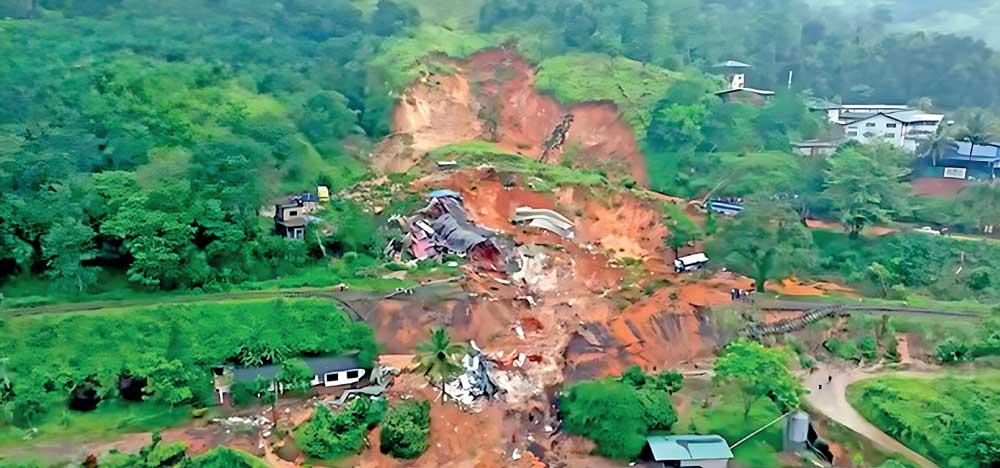
U-turns of Reds
Tuesday 6th February, 2024
A JVP delegation, led by party leader Anura Kumara Dissanayake, is currently visiting India at the invitation of New Delhi. This visit signifies an ideological about-turn on the part of the JVP, which went on a killing spree in protest against India’s interference in Sri Lanka’s domestic affairs, in the late 1980s. Resistance to ‘Indian expansionism’ is a cornerstone of the JVP’s ideology.
There is no gainsaying that Sri Lanka has to maintain good relations with India. Sri Lankan governments and political parties that seek to capture power ought to heed India’s national security concerns and act accordingly. So, the JVP’s visit to India is welcome. But there are some questions the JVP should answer anent its volte-face.
One of the five classes or lectures the JVP conducted for new recruits was on ‘Indian expansionism’. Has the JVP abandoned its ideological position on India for political expediency?
In the late 1980s, the JVP plunged this country into a bloodbath, claiming that Indian expansionism had to be stopped at any cost, and its sparrow units brutally murdered political activists who supported the 13th Amendment and the Provincial Council (PC) system, trade unionists who refused to fall in line, and even ordinary people who exercised their franchise in defiance of its order that elections, especially the first PC polls (1988) be boycotted. Later, it had no qualms about having representation in the PCs. Will the JVP explain what led to its about-face?
The JVP opposed the open economy and made it out to be an evil that the country had to be saved from. But today it has come to terms with the very economic policies it rejected! Above all, it has softened its stand on the International Monetary Fund, which it used to demonise. It perpetrated heinous crimes as part of its campaign against the executive presidency. But it has chosen to remain silent on that undertaking.
Most political parties in Sri Lanka are notorious for signalling left and turning right, so to speak. The JVP has failed to be different. At the 1970 general election, it backed the SLFP-led United Front (UF), but took up arms against the UF government the following year. In the late 1970s, it was on good terms with the Jayewardene regime, which released its leaders from prison so much so that the JVP came to be dubbed the ‘Jayewardena-Vijeweera Peramuna’. Thereafter, it turned against the UNP government and staged its second uprising only to meet its Waterloo during Ranasinghe Premadasa’s presidency. It opted for a political marriage of convenience with the SLFP-led People’s Alliance (PA) under Chandrika Bandaranaike’s leadership, and even offered to prop up the crumbling PA regime in early noughties. That government collapsed, and the UNP recaptured power in Parliament. In 2004, the JVP joined the SLFP-led United People’s Freedom Front (UPFA). It went all out to prevent Mahinda Rajapaksa from becoming Prime Minister, but in vain. It pulled out of the UPFA, accusing President Kumaratunga of trying to share tsunami relief with the LTTE. The following year, it led its bete noire, Mahinda’s presidential election campaign from the front! Subsequently, it turned against the Mahinda Rajapaksa government, and joined the UNP and others in trying to defeat that administration’s budget during the war in 2007, only to suffer a split in its parliamentary group. It closed ranks with the UNP-led Opposition to defeat President Rajapaksa in the 2015 presidential race, ensured Maithripala Sirisena’s victory, and had representation in the executive council formed by the UNP-led Yahapalana government. Today, it has taken on Wickremesinghe’s UNP, Sirisena’s SLFP and the Rajapaksas’ SLPP!
Thus, it may be seen that the JVP’s history has been replete with numerous U-turns which smack of Machiavellianism. Machiavelli has advised rulers never to hesitate to navigate the complexities of politics at the expense of traditional moral, ethical norms and principles.
Doesn’t the JVP think that it owes the public an apology for its numerous ideological U-turns and terror, which provided the Jayewardene and Premadasa regimes with a casus belli, as it were, to set in motion the UNP’s ‘Caravan of Death’, which left thousands of youth including JVP activists dead?
One main reason why the JVP has failed to muster enough popular support to capture state power under its own steam is that it is widely seen as an outfit of dyed-in-the-wool Marxists espousing the Cold War era revolutionary shibboleth. Is the JVP facing an identity crisis arising from a conflict between its revolutionary core and seemingly flexible and pragmatic periphery? Or, has the JVP’s core ideology remained intact, and its about-turns are for the consumption of the public and aimed at garnering votes to win elections?⍐






No comments:
Post a Comment